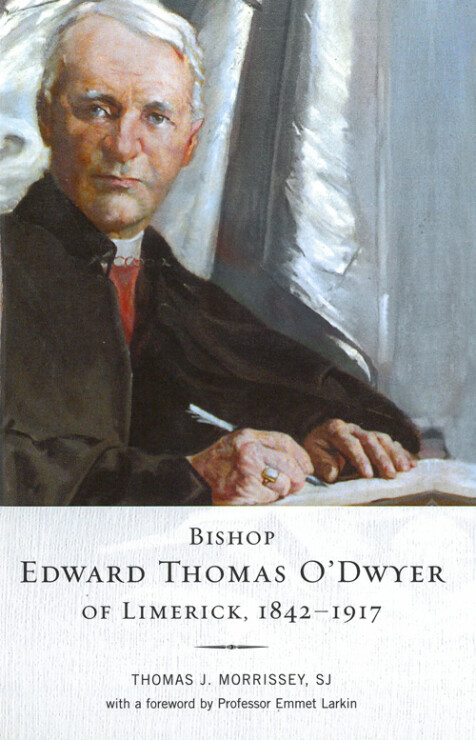Bishop Edward Thomas O'Dwyer of Limerick, 1842–1917
Thomas J. Morrissey SJ
'Our brilliant ... and difficult Bishop', as novelist Kate O'Brien described him. O'Dwyer was brilliant intellectually, independent-minded and quarrel-some, but a life-long supporter of the poor of Limerick. He played a major role in improving primary education, in helping to solve the University question, and as a leader in workhouse reform.
In his final years he helped to change the course of Irish history. In 1916, when the population was cowed following the execution of the leaders of the Rising, O'Dwyer wrote from Kilmallock his public letter to General Maxwell in defence of two of his priests, Frs Hall and Bayes. In that letter he denounced Maxwell as a murderer and stirred the whole country to life. His subsequent famous speech at the conferring on him of the Freedom of Limerick gave an episcopal approval to the spirit of national resistance and influenced the East Clare election of 1917. O'Dwyer became a national hero, de Valera quoted his speech at the hustings, and his name was joined to those of the dead 1916 leaders in popular ballads.
Thomas J. Morrissey SJ is the author of William J. Walsh, archbishop of Dublin, 1841–1921 (2000).

